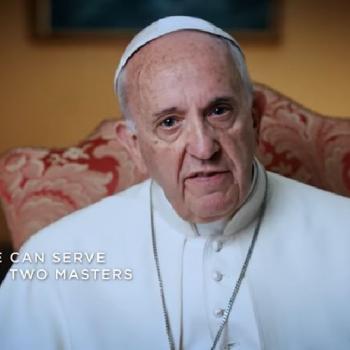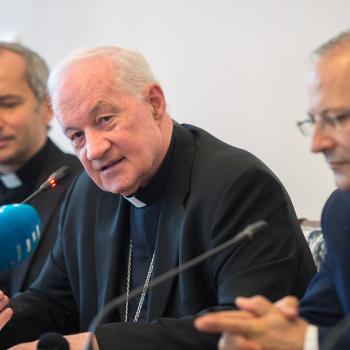A ‘no’ from Pope Francis this Wednesday to “fake news”, and a ‘yes’ to a “journalism of peace”. The pontiff has dedicated his message for World Communications Day 2018 to unmasking the “spreading of disinformation… to advance specific goals, influence political decisions, and serve economic interests”, and to promoting the “dignity of journalism and the personal responsibility of journalists to communicate the truth”.
The Pope’s take on why we fall so easily for “false information based on non-existent or distorted data meant” is well worth a read (full text of his message available here). His analysis of how fake news “grasps people’s attention by appealing to stereotypes and common social prejudices, and exploiting instantaneous emotions like anxiety, contempt, anger and frustration” in particular. But although it might not grab the headlines, Francis’ proposals for the “profound and careful process of discernment” our world of fake news calls for are more than worthy of reflection in themselves.
“To discern the truth”, the Pope says in his message, “we need to discern everything that encourages communion and promotes goodness from whatever instead tends to isolate, divide, and oppose”. A lofty ideal indeed, but here’s the sting in the tail. “An impeccable argument can indeed rest on undeniable facts”, says Francis, “but if it is used to hurt another and to discredit that person in the eyes of others, however correct it may appear, it is not truthful“. This, in other words, is why the Bishop of Rome says “we can recognize the truth of statements from their fruits: whether they provoke quarrels, foment division, encourage resignation; or, on the other hand, they promote informed and mature reflection leading to constructive dialogue and fruitful results”.
Does this all mean though, for the Pope, that we journalists should only write and publish good news? The short answer is no.
Journalists, first, must be “people who are not greedy but ready to listen, people who make the effort to engage in sincere dialogue so that the truth can emerge”. Out of that vocation comes another: the recognition that “informing others means forming others”. Informing others “means being in touch with people’s lives” and “promoting goodness, generating trust, and opening the way to communion and peace”.
Dialogue, trust, communion, peace… Hardly the material for (feel)good news but certainly “goods” in news. What the Pope says journalists of peace must devote themselves to is not “the saccharine kind of journalism that refuses to acknowledge the existence of serious problems or smacks of sentimentalism”. Far from it. Real journalism, he says, is a journalism “created by people for people, one that is at the service of all, especially those – and they are the majority in our world – who have no voice”. Real journalism is “less concentrated on breaking news than on exploring the underlying causes of conflicts, in order to promote deeper understanding and contribute to their resolution”.
My takeaway from the Pope’s message? I am struck by a particular phrase he uses to describe journalists of peace: “protectors of news” devoted to “protecting communication”. Are what I have called the “goods” of news – dialogue, trust, communion, peace – always already there in the stories journalists cover? No. But the good news is that the channels of communication are always open… even if just from one person to another.
















